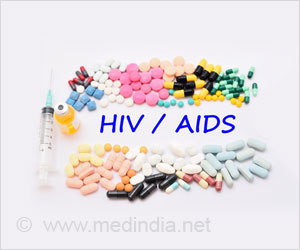For people living with HIV (PLHIV) Hepatitis C (Hep C) is a major public health challenge that can and should be controlled.

“We have a serious condition and we have clear evidence that it can be controlled” said Dr David Thomas.
Two clear solid grounds why it is important to control HCV are: It is common and very severe.
The incidence of Hep C is scary – in Baltimore, Europe or Australia, HCV occurs in 70% to up to 100% among PLHIV who acquire infection through injecting drug use (IDU).
In India, whether it is Chennai in South India, or north-east India, Hep C rates among PLHIV who acquire HIV through injecting drug use are very similar and shocking. However there are several others who just have HCV and not HIV, said Dr David.
Hep C also infects PLHIV who acquired infection through heterosexual or homosexual routes.
Advertisement
“HIV decreases response to HCV treatment – can have half of treatment outcome than HIV negative individuals” said Dr David Thomas. HCV treatment costs are over USD 20,000 per person.
Advertisement
“Risk of liver failure was higher among individuals living with HIV than those individuals who were similar with regards to HCV but HIV negative” said Dr Thomas.
The antiretroviral (ARV) therapy is not sufficient to:
• Reduce the HCV RNA load
• Restore treatment response
• Prevent cirrhosis or liver failure
However antiretroviral therapy (ART) significantly reduces mortality among people co-infected with HIV and HCV.
“Markedly lower survival for HIV/HCV co-infected persons was observed in Denmark (2000-2005)” said Dr Thomas.
HCV transmission can be prevented. Dr Thomas listed few clear points of action to prevent HCV:
• Transfusion transmission has stopped where screening is done
• Nosocomial spread reduced where bloodborne precautions observed
• HCV incidence among IDU has declined
“Even in places where harm reduction measures are in place, HCV continues. HCV is more transmissible than HIV, so measures to control HIV are not going to be enough, they need to be intensified” said Dr Thomas.
Very few people co-infected with HIV and HCV are currently receiving testing, and treatment for HCV.
There is a clear need for harm reduction measures to intensified and expanded, testing for HCV to be expanded and HCV treatment be made available widely.
“Let’s rejoice in the fact that today we have treatments that work... what we need I the political will to go the extra mile to deliver universal access” had said J Montaner, which is so much in context to improve responses to HCV and HIV co-infection.
Contributed by: Bobby Ramakant
Source-Medindia














